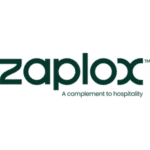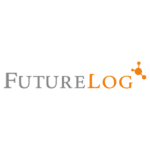 Managing a hotel is an in and of itself difficult task. You should make sure that everything is done right in all departments and the promised quality is maintained. Everything should be polished to perfection and all the employees, from the cook to the cleaner, should be closely monitored to ensure the successful completion of their tasks.
Managing a hotel is an in and of itself difficult task. You should make sure that everything is done right in all departments and the promised quality is maintained. Everything should be polished to perfection and all the employees, from the cook to the cleaner, should be closely monitored to ensure the successful completion of their tasks.
Obviously, there is near to no time to think about revenue management, especially if you are trying to do all of the administration by yourself. This is why this article will focus on ten tips to help you successfully manage your hotel revenue.
1. Make website and mobile experience a priority
In a world where most of our lives are spent online, it comes as no surprise that most of your customers will be booking rooms online. This is why keeping your website up and running is very important not only for appearing in Google search results but also for showing your reliability.
Make sure to keep all the information updated. The experience your customers have your site will play a major role in their final decision in choosing a hotel. If you still don’t have a website, you can either use such website builders as Squarespace and Wix or opt for creating your site from scratch (which will require a professional and will cost more).
2. Focus on value
The hospitality sector is very price-sensitive, which is why it is very important to focus on value. To be more exact, on value and perceived value, which are way more different than you may think.
You must provide your clients with the value that you promised them. But you must also be clear about what value your hotel provides in order for your potential customers to choose you when booking a hotel.
Show that your hotel is special by providing additional features such as outstanding customer service or exceptional food and beverages. Free parking or any other unique extras can dramatically increase the satisfaction of your guests and improve their experience. This, in turn, leads to positive reviews, recommendations, and repeat stays.
3. Manage your distribution channels smartly
Compared to large hotel chains, independent hotels often do not possess a sufficient budget to be able to make use of wider, intensive marketing. This is why you should always choose the right distribution channels to invest your invaluable money in.
When choosing a distribution channel, keep in mind such factors:
- The potential of the distribution channels.
- The ease of management.
- Costs involved in maintaining the channel.
- Marketing opportunities the channel provides.
- The technology it uses.
- Its compatibility with your own property management system.
If you are located in a place largely visited by tourists, consider translating the information on your website to appeal to international audiences and be discovered easier. You can do this with the help of such professional online translation services as The Word Point. But remember that it is advised not to do it yourself in order to maintain the quality of your content and appear serious to your potential foreign clients.
4. Offer direct booking incentives
Direct bookings are superior to bookings through external partners in many ways. They are the most desirable method of guest reservations because they help build customer loyalty and have a much lower likelihood of your potential clients choosing a competitor (as opposed to hotel comparison sites).
In order to increase the number of direct bookings, you can offer value-added incentives such as food and beverage discounts, discounts on future stays, reservation price reductions, and more. You can also consider promoting a loyalty program to increase the likelihood of your guests recommending your hotel.
5. Keep up with consumer trends
As mentioned in point number 3, being old-fashioned is not good for your hotel. You must always keep up with the changing consumer trends and customer behaviour. Try different ways of approaching this, such as having periodic reviews of the booking process to see which channels customers use to make reservations or changes in the customer demographic.
Make sure to always monitor the activity online. Everything from short tweets to lengthy reviews should be seen and addressed in order to build customer loyalty and trust. Besides, you will be able to get a lot of valuable feedback this way.
6 Organize your records of key data
Whether you are using CRM technology or simple Microsoft Excel to organize your data, you should always keep in mind that you don’t need every single bit of information. Store only the key data and organize it in an efficient way. When analyzed properly, insights into key data can drive your entire revenue management approach.
7. Use automation to support, not replace
Revenue management should never entirely rely on mere automation. Humans are much more reliable than machines, and where the former ones succeed, the latter ones fail. Keep in mind to find the perfect balance between the two and stick to it in order to achieve the best results in your hotel revenue management and administration in general.
8. Remember about ROI
By using the KPI data and focusing on ROI, you will be able to maintain your revenue management almost to perfection. After all, ROI is somewhat of a foundation when it comes to revenue management. Every choice you make will primarily depend on it, so make sure to analyze your KPI data correctly and set the right goals for yourself.
9. Always improve your revenue management
Remember that there is always more space for improvement. Create a culture of revenue management through organization to show your employees that it is important. Check out such sites as eHotelier to find more new tips on how to successfully manage hotel revenue and improve other aspects of your hotel. If you don’t develop, you might be stuck back in time which is never a good thing.
10. Achieve accurate demand forecasting & mapping
Last but not least, accurate demand forecasting is crucial for setting the right goals and having precise and realistic expectations for the season.
Likewise, mapping is important to understand where your demand originates from. With its help, you can spot trends that will tell you whether demand is growing or declining from certain customer demographics depending on age, place of origin, and so forth. Mapping can also support marketing and sales initiatives which will increase future revenues.
Conclusion
All in all, maybe leaving some administrative tasks to other people than yourself is a good idea if you want to be able to have at least some time for yourself. There is no need to carry the burden of hotel management yourself, but there are some things, like hotel revenue management, that should be rather done by you specifically. If you follow these tips, you will be on your way to successfully do just that.



















